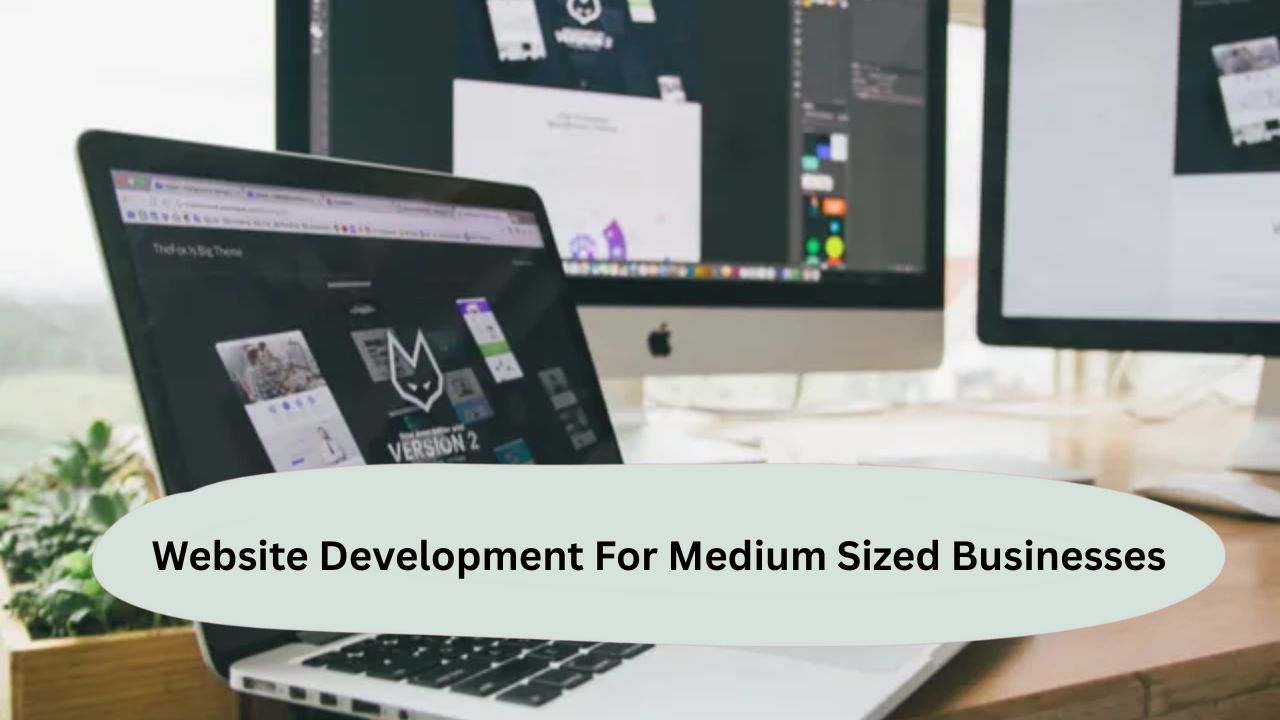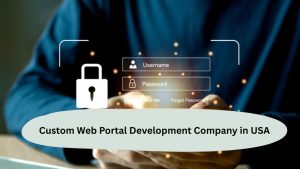By establishing a website for my company, I improved its online presence, and the results were astonishing—increased leads, improved web traffic, and effortless visibility for customers. It is amazing how a simple course of action can boost my business when I invest in a website with appropriate responsiveness and SEO features.
Having a website offers a company a professional digital presence as it allows the firm to receive and process client orders and create business accounts. A responsive and secure web page is an advantage to the business, as it is permanently available and accessible to the company.
We will look at the amazing results that website development for medium sized businesses can offer. I can create a web page with the company’s design and assist in digital marketing and SEO. Everything that a company needs to be competitive is available at a single location.
Essential Website Features for Medium Sized Businesses
Must-Have Pages and Sections
Every medium-sized business website should include a variety of essential pages that serve specific purposes. Let’s start with the basics:
- Homepage: This is the first impression. It should clearly explain who you are, what you do, and how you help your customers. Eye-catching visuals, a strong value proposition, and intuitive navigation are key.
- About Us: People like to do business with people they trust. Use this page to tell your company’s story, showcase your team, and build credibility.
- Products/Services: List what you offer in detail. Include features, benefits, pricing, and relevant images or videos.
- Contact Page: Include a simple form, address, map, phone number, email, and social media links. Make it incredibly easy for visitors to reach out.
- Testimonials/Reviews: Social proof boosts trust. Display customer success stories and reviews from real clients.
- Blog/Resources: A blog helps with SEO and provides valuable insights to your audience. Consistent, well-written content drives traffic.
A good structure keeps users engaged and helps them find the info they need. Keep it clean, organized, and user-friendly.
Integrating Analytics and Tracking Tools
What’s the point of a beautiful website if you don’t know how it’s performing? Integrating tools like Google Analytics, Google Search Console, and Hotjar can give you deep insights into:
- Visitor behavior
- Traffic sources
- Conversion rates
- Page performance
This data empowers you to make smart marketing decisions and fine-tune your website strategy. Consider setting up goal tracking for specific user actions (like filling out a contact form or signing up for a newsletter).
Accessibility and User Experience (UX)
Website development for medium sized businesses isn’t just about aesthetics. Accessibility ensures everyone — including people with disabilities — can use your site. Follow guidelines like:
- Using alt text for images
- Ensuring sufficient contrast between text and background
- Enabling keyboard navigation
And don’t forget about UX. It covers:
- Easy navigation
- Clear call-to-actions
- Fast-loading pages
- Consistent design elements
A smooth, intuitive user experience keeps visitors on your site longer and helps turn them into customers.
What is the average cost to build a website for a small business?

You can expect to spend between $2,000 $10,000 for a small business website. This expense is influenced by a range of factors such as the business website’s design, the site’s complexity, and custom branding.
It also depends on the builder. If it is a DIY using Wix or WordPress, it will be cheaper as compared to a freelancer or agency. Basic websites are cheaper as compared to those with e-commerce or custom features.
How Long Does It Take to Develop a Website for a Small Business?
The duration for the development of a small business website is usually 2 to 8 weeks, depending on the complexity and scope. A simple brochure website can be developed in a minimum of 2-3 weeks, whereas advanced sites with custom design, e-commerce, or special features may take up to 6-8 weeks or more. Here’s a snapshot:
- Planning and Research – 3 to 5 days
- Design Phase – 1 to 2 weeks
- Development and Integration – 2 to 3 weeks
- Testing and Review – 4 to 7 days
- Launch and Optimization – 1 to 2 days
Extra time might be added for content, revisions, and client feedback loops. Open communication and a well-defined project timeline facilitate the process.
Expert Web Development for Medium Business Growth

Tailored Solutions That Scale With Your Business
As medium-sized businesses grow, their digital needs become more complex. Off-the-shelf solutions often fall short in performance, scalability, and customization. Expert web developers build sites that are custom-designed for your domain, business, audience, and goals.
Focus on Performance and User Experience
Speed, functionality, and mobile responsiveness are no longer optional; they’re essentials. Expert developers focus on optimizing your website’s performance to ensure fast load times, seamless navigation, and intuitive design. A well-performing site that loads smoothly on every device builds trust with visitors and boosts conversion rates.
Advanced Features and Custom Integrations
Medium businesses typically require more than a contact form and a blog. You might need CRM integrations, automated workflows, secure client logins, booking systems, or product databases. Custom web development makes all of this possible by building exactly what you need without bloating your site with unnecessary plugins.
SEO and Marketing-Ready Infrastructure
An expertly built website includes an SEO-friendly structure from the ground up. Clean code, schema markup done correctly, meta optimization, and quick page loads enable you to rank higher. Your marketing efforts get amplified from day one, thus providing your business with an edge on the web.
Future-Proof Development and Reliable Support
As your company grows, so should your website. Having seasoned developers on board means your site is developed with scalability in mind.
How much does it cost to hire someone to do a website for your small business?
Currently, having a small business website designed and constructed by professionals costs between $2000 and $8000. Unlike freelancers who do single-field work, agencies offer a complete branding package that includes content development, marketing, mobile design, and even mobile optimization. Your website is able to receive different types of customizations tailored to your needs.
Is Webflow Good for Small to Mid Size Businesses?

Yes, Webflow is an excellent choice for small to mid-sized businesses looking for flexibility, design control, and fast deployment. It’s a no-code platform that allows designers and marketers to build professional, responsive websites without needing a developer for every update.
Why Webflow works well:
- Visual Builder: Drag-and-drop interface allows full design freedom.
- No-code CMS: Clients can manage content easily without technical help.
- Fast Hosting: Includes secure, high-performance hosting powered by AWS.
- SEO-Ready: Built-in SEO tools like meta tags, alt text, and clean code.
- Scalability: Great for starting small and growing without redoing the site.
Webflow is ideal for marketing sites, portfolios, landing pages, and even e-commerce stores with simple requirements. However, for complex backend needs or large-scale stores, more robust stacks like custom React or Shopify Plus might be better.
Medium/Large Businesses Website Design & Development
Strategic Planning and Brand-Centric Design
Designing websites for medium to large companies begins with a strategic business analysis to understand user requirements. Each element is visualized, from color schemes to branding, to foster user trust and reinforce brand identity.
Custom Development and Enterprise-Level Capabilities
Advanced multilingual support and ERP integrations, along with other sophisticated features, are a necessity for large-scale enterprises. Custom development ensures scalability, security, and smooth performance for high traffic.
Cross-Department Collaboration and Workflow Integration
Web solutions are designed to support multiple departments with CRM, lead tracking, and internal dashboards. This ensures seamless workflow integration across the organization.
Accessibility, Compliance, and Security
Enterprise websites must observe rigid security and compliance policies like GDPR and ADA. Encryption, secured logins, and routine audits safeguard sensitive information.
Global Reach, Performance, and Scalability
International access and a robust global presence are guaranteed. Websites are meticulously optimized with clean code, CDNs, and server-side rendering to enhance speed.
How much should a 20-page website cost?

Depending on the content type, features, and design, a 20-page website is estimated to cost between $3000 and $15000. The additional pages directly lead to increases in the cost because of added content integration, layout design, and extensive testing. Overall cost will also increase if additional custom features and plugins, blogs, and booking systems are added.
What Web Stack Do Developers Use for Small to Medium-Sized Business Websites?
Most developers employ contemporary, scalable, and affordable stacks that fit business objectives and performance. The preferred stack often depends on the nature of the project. Here are the commonly used technologies:
Frontend:
- HTML5, CSS3, JavaScript
- React.js or Vue.js (for interactive UI)
Backend:
- Node.js, PHP, or Python (Django)
- WordPress (widely used for small businesses)
CMS Platforms:
- WordPress (with Elementor, Divi, or custom themes)
- Shopify (for e-commerce)
- Webflow (for design-focused websites)
Hosting & Deployment:
- SiteGround, Bluehost, Vercel, Netlify
- Cloudflare for performance and security
These stacks are selected based on the client’s requirements, scalability needs, budget, and ease of maintenance.
WordPress Website Design and Development Agency

Custom WordPress Themes Tailored to Your Brand
A WordPress agency creates custom themes specific to your business to avoid using templates. They capture your business identity and help connect with your customers. Your business and audience are engaged through visuals and other elements.
SEO-Optimized and Mobile-Responsive Design
A business WordPress site comes with optimizations for mobile devices, speed, and search engines. Agencies enforce clean coding, proper meta, and responsive layouts, which help a business grow and improve user experience.
Plugin Integration and Advanced Functionality
Agencies use premium plugins for additional functions like e-commerce, booking services, and multi-language capability. They make sure that these plugins are set up correctly and that they will not negatively impact your website’s speed.
Ongoing Support and Website Maintenance
Agencies take care of updating, backing up, securing, and fixing site errors. They manage your site’s tech issues like a well-oiled machine while you work on scaling your business.
E-Commerce and Conversion-Focused Builds
Every site is tailored to enhance specific key performance indicators. For lead generation and sales, agencies integrate e-commerce and design intuitive layouts with clear CTAs to maximize potential and boost shopping experiences.
Conclusion: Website Development For Medium Sized Businesses
Website development for medium sized businesses goes beyond having a simple online presence; it’s about creating a conversion-focused website that drives growth. By prioritizing responsive design, SEO, security, and user experience, businesses can compete effectively and attract more customers. Treat your website as a long-term business asset that continuously generates leads, builds trust, and boosts sales.
FAQs: Website Development For Medium Sized Businesses
1. Why is website development important for medium-sized businesses?
Website development provides medium-sized businesses with an online presence that enhances credibility, attracts new customers, and generates leads. It also supports digital marketing strategies like SEO, email marketing, and social media integration.
2. How much does website development for medium sized businesses typically cost?
The cost can vary based on complexity. A basic WordPress website may cost $3,000–$5,000, while a custom-developed site with e-commerce or unique features can range from $10,000 to $30,000.
3. How long does it take to develop a medium-sized business website?
Typically, it takes 6–12 weeks, depending on the design, number of pages, and functionality required. Complex e-commerce websites or custom features may extend the timeline.
4. Should medium-sized businesses choose custom web design or templates?
If branding and scalability are crucial, custom design is best. If budget and speed are the main priorities, a high-quality template can be sufficient with proper optimization.
5. How can a medium-sized business improve its website’s performance after launch?
Regularly update content, optimize for SEO, track analytics, maintain site speed, and implement security measures. Also, consider A/B testing and conversion optimization to continually improve results.
Read more:



